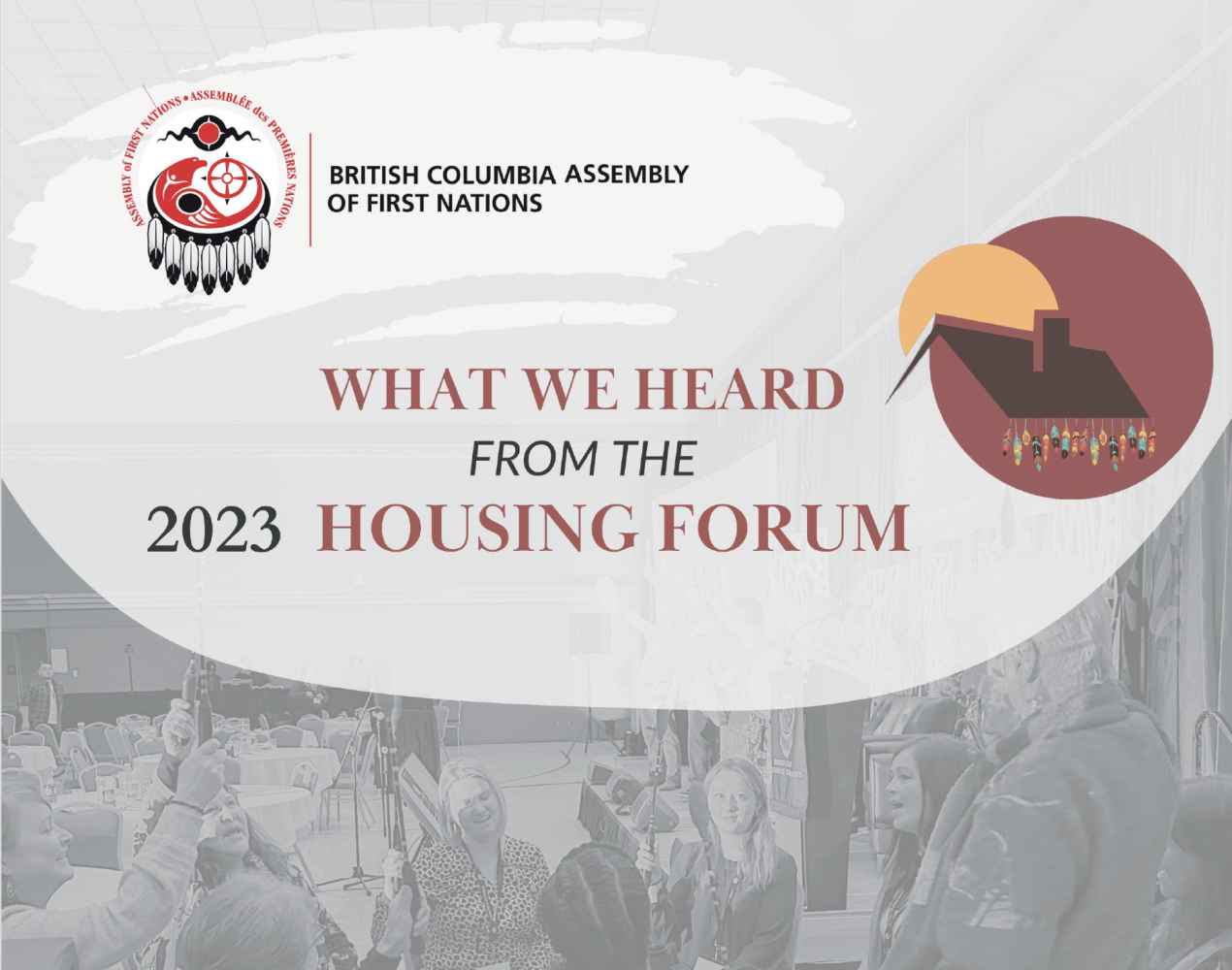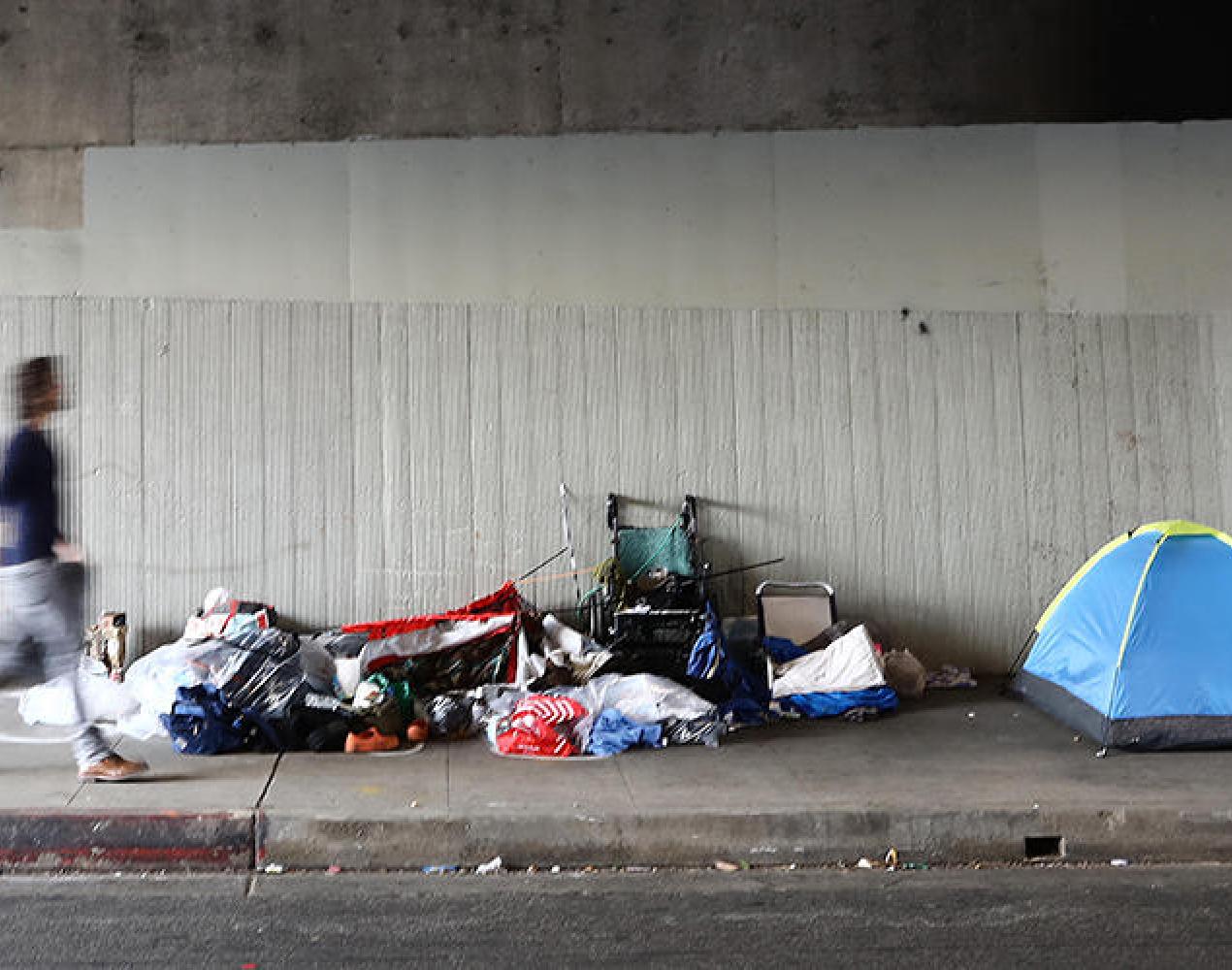BCAFN & FNHIC 2nd Annual Housing & Homelessness Forum 2024: What We Heard Report PDF
Housing is a critical indicator of well-being for First Nations communities in Canada and is intricately linked to health outcomes and stability. In British Columbia, First Nations face persistent challenges in securing safe and affordable housing, compounded by systemic inequities rooted in colonial policies that perpetuate discrimination and violence. As a result, issues like homelessness, overcrowding, and unsafe living conditions are prevalent. Recognizing housing as a fundamental human right, the BCAFN-FNHIC First Nations Housing and Homelessness Forum in 2024 brought together leaders and community members to address these pressing challenges. Discussions highlighted the importance of aligning housing policies with the United Nations Declaration on the Rights of Indigenous Peoples, focusing on collaborative, culturally appropriate, and climate-resilient solutions that incorporate traditional knowledge. The forum aimed to foster economically sustainable housing that strengthens the social fabric of Indigenous nations, capturing the collective wisdom and aspirations for transformative change.


What We Heard from the 2023 Housing Forum PDF
First Nations communities face complex and disproportionate housing related challenges deeply rooted in historical and persistent colonization, systemic barriers, and inadequate funding. The BCAFN Housing Forum brought together leaders, experts, and community representatives to address the complex issues surrounding First Nations housing and homelessness.
This report summarizes the rich tapestry of presentations, panels and dialogues that guided discussions over two days, spanning a wide range of topics from housing insecurity and the climate crisis to for-First Nations, by-First Nations governance structures and collaborative initiatives. At the forefront of these dialogues were pressing issues of First Nations housing insecurity and homelessness, both on and off-reserve, and the detrimental impacts of the climate emergency and housing insecurity.
The discussions highlighted a critical disparity in funding allocation. In British Columbia, over 20% of Indigenous households, in both urban and rural areas, face core housing needs. The groundbreaking Closing the Infrastructure Gap Report from the AFN estimates necessary expenditures of $349.2 billion, including $135 billion for housing over the next seven years, emphasizing the significant investments required for equitable access to housing and infrastructure for First Nations communities.
Forum discussions underscored the vital need to rigorously uphold the United Nations Declaration on the Rights of Indigenous Peoples (UN Declaration) across all levels of government in Canada. Throughout the forum, various Chiefs, leaders, and experts engaged in meaningful dialogue, highlighting key challenges and community-led solutions while offering recommendations for progress at the community, regional, and national levels.
On Monday March 21, 2022, the BC Assembly of First Nations (BCAFN) will announce two troubling reports concerning enforcement of the City of Prince George’s Safe Streets Bylaw (No. 9209). The City adopted the Bylaw on August 30, 2021, despite clear opposition from First Nations leadership, local service providers, and other key advocates.
Experiences With Bylaw in Prince George PDF
On August 30, 2021, the City of Prince George (CPG) adopted the Safe Streets Bylaw No. 9209, 2021 (Bylaw) with the intent to “help make the streets, sidewalks, and alleys of Prince George safer for all residents.” According to the City, “the overall purpose of bylaw enforcement is to gain voluntary compliance, not to criminalize,1” which Mayor Lyn Hall described as “educational2.” Further, Councillor Kyle Sampson acknowledged that “there is a process to retract a bylaw if it's not working.”
'Move On' PDF
The First Ninety-Nine Days of the City of Prince George Safe Streets Bylaw
Written by Joe Hermer, University of Toronto1 March 20th, 2022
This report outlines a preliminary analysis carried out on the bylaw enforcement of the new Prince George Safe Streets Bylaw (#9209). The analysis examines 427 ‘workflow’ files or bylaw enforcement events that the city staff has identified as being the consequence of Safe Streets Bylaw enforcement. These files encompass the first ninety-nine days of the enforcement of the Bylaw, from August 31 to December 8th, 2021.
BCAFN Welcomes City of Prince George’s Statement on Appeal of Encampment Injunction Decisions and Apology for Causing Harm to Vulnerable Citizens - press release (March 24, 2022)
The BC Assembly of First Nations (BCAFN) welcomes the City of Prince George’s Statement on Appeal of Encampment Injunction Decisions and the press release City Apologizes for Causing Harm to Vulnerable Citizens, released today.
“I’m pleased that the City is moving in a more positive direction by withdrawing their appeal to seek closure of the Moccasin Flats encampment in downtown Prince George, and that they have apologized to Prince George citizens who were harmed and traumatized by their illegal destruction last fall of residents’ shelters and people’s personal possessions,” stated Regional Chief Terry Teegee. “We must continue to work together toward humane, evidence-based approaches that will benefit all Prince George citizens and ensure social and environmental improvements in the face of ongoing life-threatening crises of poverty, homelessness, and illicit-drug poisoning.”
Going forward, it is crucial that the City works collaboratively and engages with organizations and individuals who are knowledgeable in the cultures and lived experiences of Prince George citizens who are struggling on the streets. A collaborative and evidence-based approach will ensure long-term and effective impacts that will benefit everyone living in the community of Prince George.
“Resources must be used more humanely if we are to see improved positive changes in Prince George. I hope to see less discriminatory bylaw enforcement, harassment strategies, harmful policies from the City, bylaw officers and RCMP,” further stated Regional Chief Teegee. “Let’s forge a path of reconciliation together.”
Earlier this week, the BCAFN released two reports demonstrating the troubling and harmful impacts of Prince George’s Anti-Homelessness Bylaw. Experiences With Bylaw in Prince George comprises exploratory qualitative research documenting the experiences of de-housed and precariously housed residents under the Safe Streets Bylaw. Move On: The First Ninety-Nine Days of the City of Prince George Safe Streets Bylaw outlines an analysis carried out by Dr. Joe Hermer, chair of the Department of Sociology at the University of Toronto. Both reports can be found on the BCAFN website.


Reports Demonstrate Troubling Results of Prince George Anti-Homelessness Bylaw: BC Assembly of First Nations - press release (March 21, 2022)
(Lheidli T’enneh Territory, Prince George, BC) — The BC Assembly of First Nations (BCAFN) announces two troubling reports concerning enforcement of the City of Prince George’s Safe Streets Bylaw (No. 9209). The City adopted the Bylaw on August 30, 2021, despite clear opposition from First Nations leadership, local service providers, and other key advocates.
Experiences With Bylaw in Prince George comprises exploratory qualitative research documenting the experiences of de-housed and precariously housed residents under the Safe Streets Bylaw. Move On: The First Ninety-Nine Days of the City of Prince George Safe Streets Bylaw outlines an analysis carried out by Dr. Joe Hermer, chair of the Department of Sociology at the University of Toronto. Dr. Hermer carried out a preliminary examination of 427 ‘workflow’ files or bylaw enforcement events identified by City staff as resulting from the new Bylaw.
Read the full press release here
Terry Teegee: Municipalities in B.C. seem blinded to their responsibility to be good-faith partners in reconciliation (March 16, 2022)
Opinion: With such a high proportion of homeless people being Indigenous, many municipalities that continue to pursue a strategy of destroying encampments are in violation of the UN Declaration on the Rights of Indigenous Peoples
Read the full Op-ED in the Vancouver Sun

